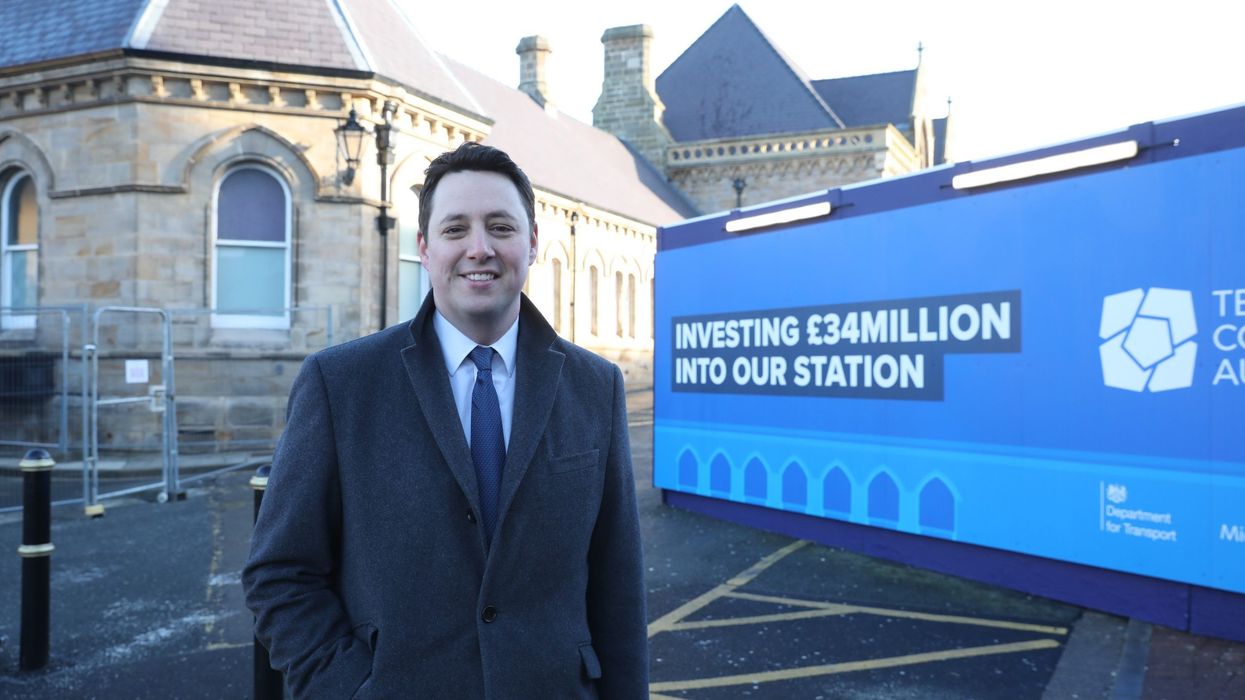By Alex Metcalfe
VICTORIOUS mayor Ben Houchen said there was still “a long way to go” on Teesside in the wake of a landslide win.
The Conservative claimed almost three-quarters of the votes cast across the Tees Valley in holding onto the mayoralty following polls on May 6.
Houchen said he would “continue to fight our corner” in Government as part of his victory speech – but stressed there was still a lot of work to be done in the next three years.
He added: “I’m not going to stand here and I’m certainly not going to pat myself on the back.
“We’ll reflect on it for the next couple of days but actually we need to get back to work – we’ve made a fantastic start and I’m confident the things we’ve put in place will reap benefits.”
The Conservative mayor pointed to the freeport but repeated there was still a long way to go to ensure jobs and investment came.
He believed the role of government needed to be acknowledged – and said the prime minister Boris Johnson had given him a lot of personal support.
But Houchen said the area “wanted more” – and more government departments in the region.
“I’ve never shied away from concentrating on big things and the reason I do is because this area has been neglected for decades,” he added.
The mayor added both Labour and Conservatives governments had neglected the area but he wanted to make sure “that was no more”.
But he believed his victory was the “start of something special”.
Houchen added he was humbled and overwhelmed by the scale of the support he’d received but it came with “huge responsibility”.
He said: “There is now an increased pressure I feel internal to be able to fulfil and give back to the people what they want to achieve – and that’s the stuff we’ve already done to bring jobs and investment back to our region.”
His speech was marked by references to the freeport, Teesside Airport and jobs.
The Conservative mayor said he’d be “back at work tomorrow morning” – adding he’d been “a bit discombobulated” by the election as he “wanted to get back to getting on with the job”.
Tangible benefits in improvements at Middlesbrough Station and General Electric coming to Teesworks in Redcar were projects Houchen listed.
He added: “Come October, that’s when the GE factory starts to get built and that’s hundreds of construction jobs.
“By February 2023, we’re going to have 2,000 jobs in the local area and 750 direct from the GE factory.
“What I want to do, which it’s been such a frustration, I want to get on and speak to those other investors who have been knocking on the door about coming to the freeport.
“That’s why it’s so important I stood for a second term as we’ve just started a huge amount of good work – and now we’ve got those building blocks in place, the next phase is when we see all the jobs.
“We’ve started to see some of that already but we should start to see some of that in the next few years.”
Health troubles
Labour’s Jessie Joe Jacobs pointed to the poverty and mental health problems blighting parts of Teesside in her results speech.
The Tees Valley Combined Authority (TVCA) doesn’t have control over health and social care yet – but Houchen has called for more powers in the past and wanted a “conversation” on the subject with Government chiefs.
“I do think we should have more control over health,” added Houchen.
“If the Government devolved the funding to the combined authority and the mayor, rather than the CCG (Clinical Commissioning Group), which I think is largely unaccountable and people aren’t aware of it, then that’s a sensible thing.
“You allow clinicians to get on and deliver the services at our local hospitals but actually you;’ve got political accountability as to where health services should be funded.
“What’s unique about our area is different from elsewhere. If you look at the North-east as a whole, we’ve got a higher percentage of people aged over 70 and that comes with unique health requirements.
“For a lot of people furthest away from the job market, there are often a lot of health barriers to get back into employment.
“There is a marriage between investment in jobs and improving the health outcomes and lives of people as well.”
Job delivery
The covid pandemic has resulted in thousands of jobs being lost across the Tees Valley.
Houchen said they’d “fight to get them back” – pointing to statistics from the Bank of England and the £16m put into business through grant funding.
He added he wanted to “supercharge” the schemes.
The Tories had a good 24 hours on Teesside with Steve Turner winning the Cleveland Police and Crime Commissioner race and five Stockton by-elections all going to the party.
Asked whether the Conservatives were now the political establishment on Teesside, Houchen said they had a “responsibility to deliver”.
He added: “There is huge competitiveness now.
“Are Redcar and Hartlepool safe seats? absolutely not – and Labour will come back hard at the next election.
“The onus and responsibility is on us to justify to people why they vote for us.
“I actually think more competition in a place like Teesside actually means that Labour can’t rest on their laurels any more and they’ve got to up their game.
“What we have to do is prove why people should continue to vote for us.
“That competition is local politics we haven’t had on Teesside in a long time will actually lead to better outcomes for the public.”
(Local Democracy Reporting Service)




